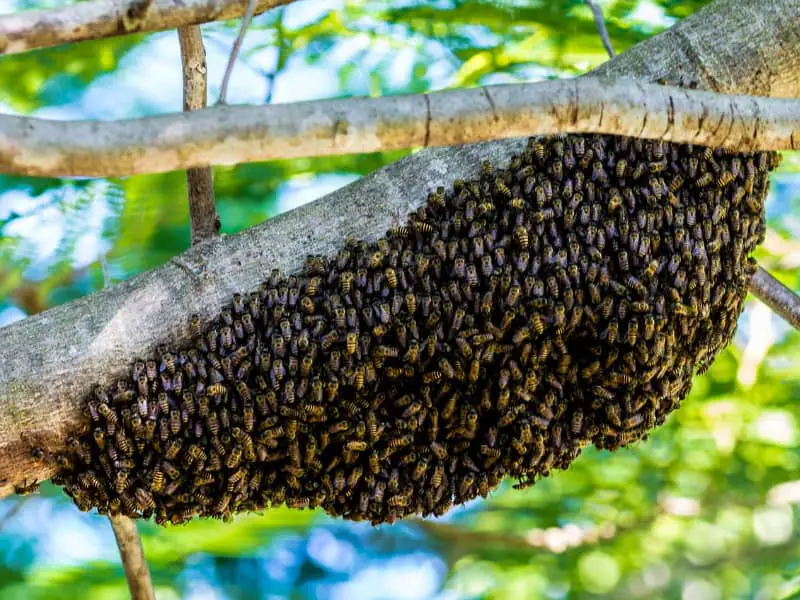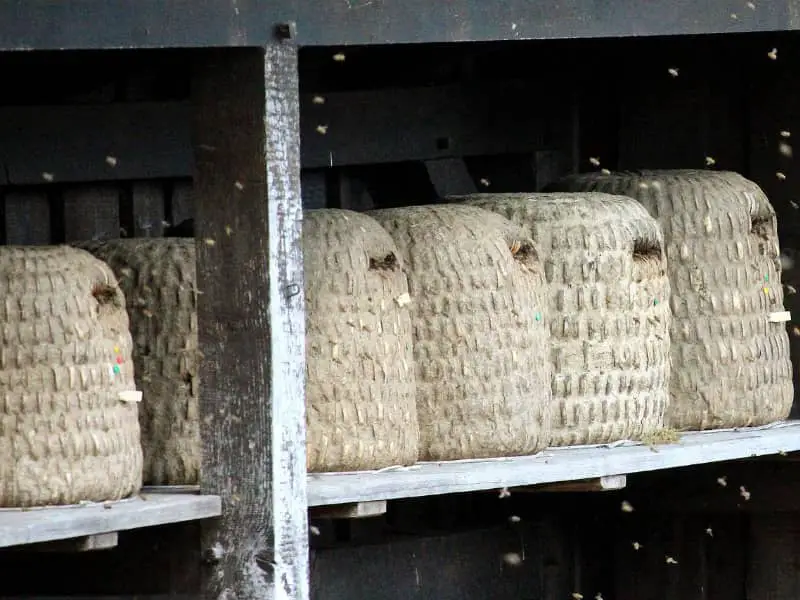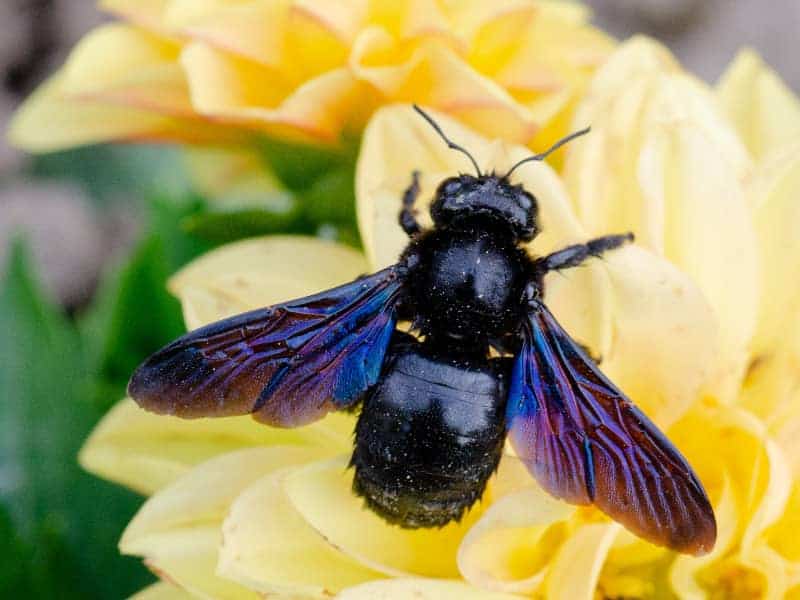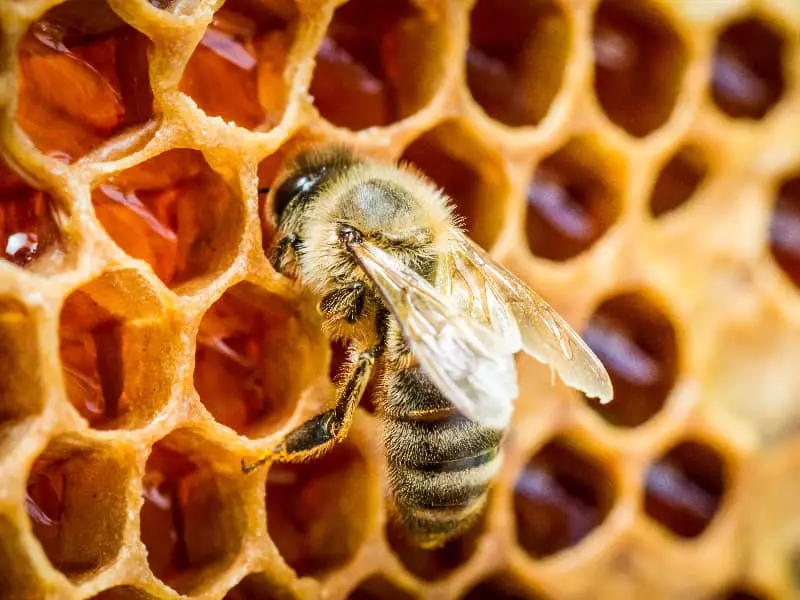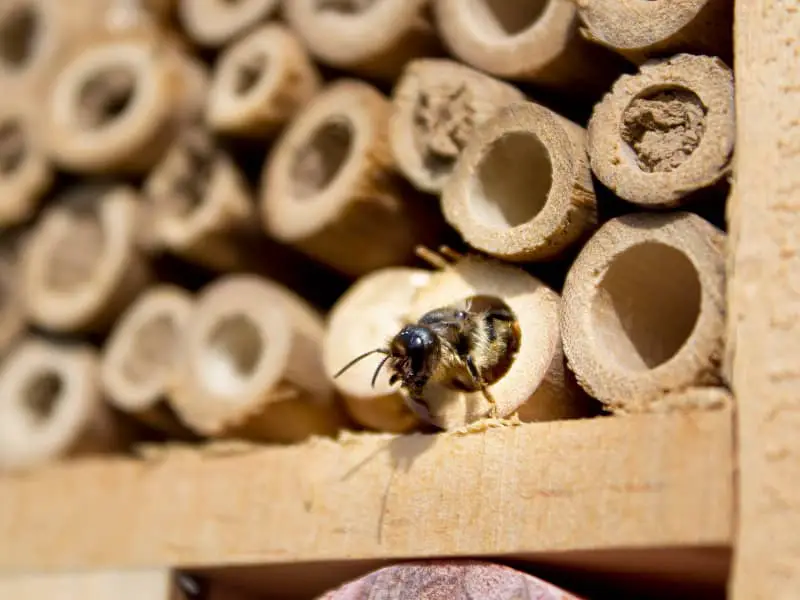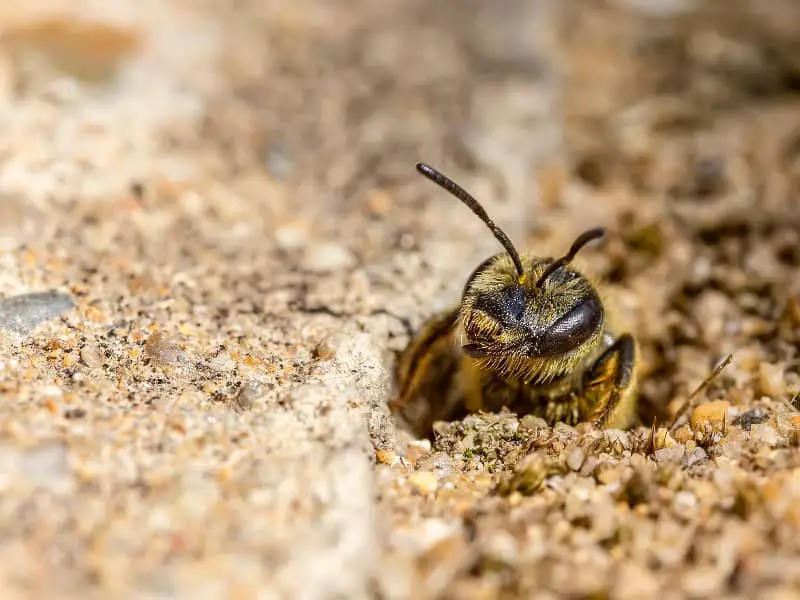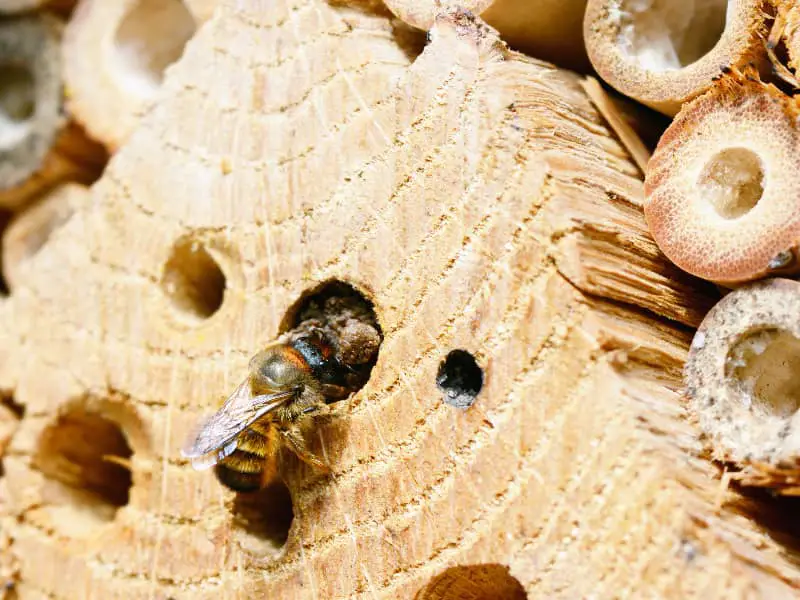
Buy wild bees
In the chirping of birds and the buzzing of bees lies the magic of nature. This article takes you into the amazing world of wild bees. Although many people associate bees mostly with honeybees, there are actually about 20,000 different species of bees in the world, and most of them are wild bees. But why should you buy wild bees?
Dive into this topic with us, and discover how you can support biodiversity and breathe new life into your garden.
What are wild bees anyway?
Wild bees are the unsung heroes of the ecosystem. They differ in many ways from their domesticated relatives, the honey bees. Wild bees do not produce honey, but still live in a deep symbiosis with nature. They are often solitary and do not have the typical bee colony as we know it. Their biodiversity is impressive, and each species has its own peculiarities and preferences.
Why are wild bees so important for our ecosystem?
It's no secret that bees - both wild and honey - play a crucial role in our environment. As pollinators, they play a key role in maintaining biodiversity. Much of the food produced worldwide depends directly or indirectly on pollination by bees.
But while honey bees primarily pollinate agricultural monocultures, wild bees often specialize in specific plant species. This makes them irreplaceable players in the conservation of rare plant species.
Why buy wild bees?
Now you might ask: If wild bees live in the wild, why buy them? The reason is simple: by buying wild bees you support the conservation of their species. Many wild bee species are threatened by habitat loss and the use of pesticides.
By purchasing wild bees, especially from reputable breeders, you are investing in the protection of these wonderful insects and providing them with a new habitat in your garden or on your balcony.
How to choose the right wild bees?
It's not like you go to a store and buy a jar of wild bees. It is a conscious process. First, you should learn about the different species that are found in your area. Some species might be better suited to your garden, depending on what plants you have there.
Search for reputable breeders or organizations that offer wild bees for sale. It is important to pay attention to the origin and husbandry conditions of the bees. Reputable breeders will advise you and tell you which of the wild bees suits you. You can find one of them here.
How do you provide a good home for wild bees?
It is not enough to buy wild bees and then leave them to their fate. They need a suitable habitat. A wild bee hotel is a great way to provide them with shelter. You should use materials such as untreated wood, bamboo or reeds.
But not only the living space is important. Food in the form of flowering plants should also be available in sufficient quantities. Wildflower meadows or flowering shrubs offer ideal conditions for this.
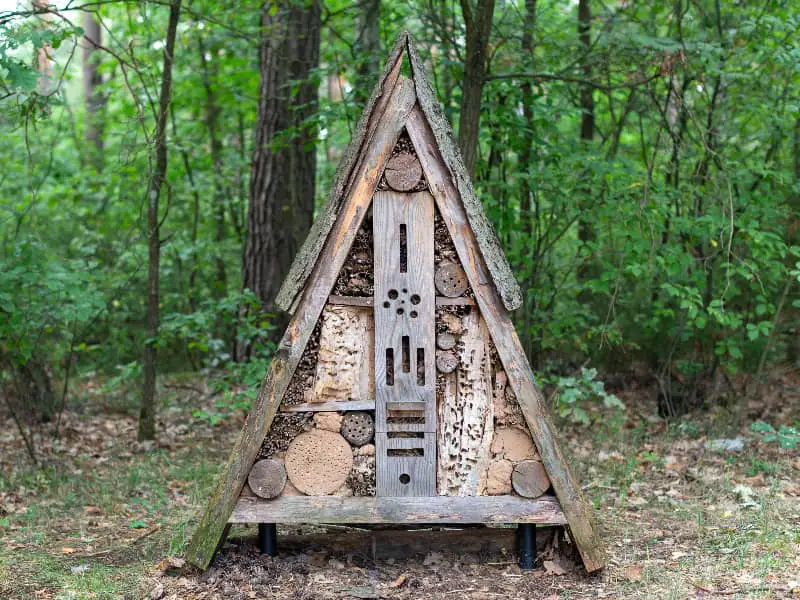
What are the threats to wild bees?
The threats facing wild bees vary, but many of them are man-made. One of the main reasons for the decline in wild bee populations is habitat loss. This results from intensive agriculture, development of green spaces, and the use of pesticides and herbicides. Some pesticides are particularly harmful to bees because they are neurotoxic and disrupt the bees' ability to navigate.
Another problem is competition from invasive species. In some areas where honey bees have been introduced, they displace native wild bees. This leads to a reduction in biodiversity and can affect the entire ecosystem.
How does keeping wild bees differ from keeping honey bees?
Many people immediately think of bees in terms of hives, beeswax and honey. But the world of wild bees is different. Wild bees are usually solitary, which means they do not live in large colonies like honey bees. Their way of life is rather inconspicuous and reclusive.
While honey bees are kept in artificial hives, wild bees look for natural hiding places, such as hollow plant stems, holes in the ground or crevices in stones. Therefore, a wild bee hotel that offers various hiding places is an ideal addition to the garden.
No products found.
Can you support wild bees without buying them?
Yes, definitely! It's not mandatory to buy wild bees to support them. Creating bee-friendly gardens, avoiding pesticides, or putting up wild bee hotels are great ways to help wild bees. Planting native flowers and shrubs that provide nectar and pollen is also a great way to help.
How do I know if there are wild bees in my garden?
Wild bees are often difficult to spot because they are smaller and less conspicuous than honey bees. But there are clues to their presence. If you see plants being pollinated but not many large bees flying around, it could be wild bees doing their work. Some species of wild bees are very specific in their choice of plants to pollinate, so observing which plants are being pollinated could also provide clues.
Another sign is small holes in the ground or wood that serve as entrances to nests. Some wild bees dig underground nests, while others nest in hollow stems or holes in dead wood.
What do wild bees eat?
The main diet of wild bees consists of nectar and pollen, which they collect from flowers. Nectar provides them with the necessary energy in the form of sugar, while pollen provides proteins and fats, especially for the larvae. However, some wild bee species are very specialized and collect pollen only from certain plant species.
How long do wild bees live?
The lifespan of wild bees varies depending on the species. Many wild bees live only a few weeks to a few months. Within this short period of time, they have to gather food, mate and find a suitable place for their eggs. In contrast, queens of some species can live for several years, although this is rather the exception.
How do wild bees communicate?
Unlike honey bees, which are famous for their "dance" to communicate the location of food sources to other bees, wild bees are solitary and do not have the same communicative skills. Nevertheless, they have methods to interact with other bees, especially during mating or when defending their territory.
Conclusion
The fascinating world of wild bees offers us a deep insight into the complexity and beauty of nature. By working to protect and support these precious pollinators, we not only contribute to the ecological balance, but also enrich our own lives.
A garden full of buzzing wild bees, colorful flowers and the knowledge that you are making a positive contribution is priceless. It's in our hands to make the world a better place for these small but mighty creatures. By understanding, appreciating and supporting them, we can make a difference.
Author

-
Garden animal - A life with nature
Welcome to my animal blog! My name is Dirk and I am happy to take you on my journey through the fascinating world of animals and gardening.
Born 54 years ago, I have had an insatiable curiosity for the animal world around me since childhood. Although I have moved professionally in other industries, my true passion has always been animals and nature. It is remarkable how a small garden has become such an important part of my life.
Many of my fondest memories are associated with the animals that share our home. Whether it's the curious squirrels that scurry across the trees in the morning, the colorful variety of birds that visit our feeders, or the busy bees and butterflies that pollinate our flowers, every moment with them is invaluable to me.
This blog is my contribution to share my experiences, discoveries and insights with like-minded people. Here I will share stories of unforgettable encounters with animals, give tips on gardening and creating wildlife-friendly habitats, and take you on my journeys through nature.
Thank you so much for being here!
Cordial,
Dirk aka garden animal
Last posts
- 27. February 2024PetsVeganes Hundefutter – Grün und Gesund?
- 18. January 2024ChickensOregano für Hühner
- November 27, 2023HamsterDiurnal hamsters
- November 24, 2023HamsterHamster hammock
Letzte Aktualisierung am 2026-02-13 / Affiliate Links / Bilder von der Amazon Product Advertising API

